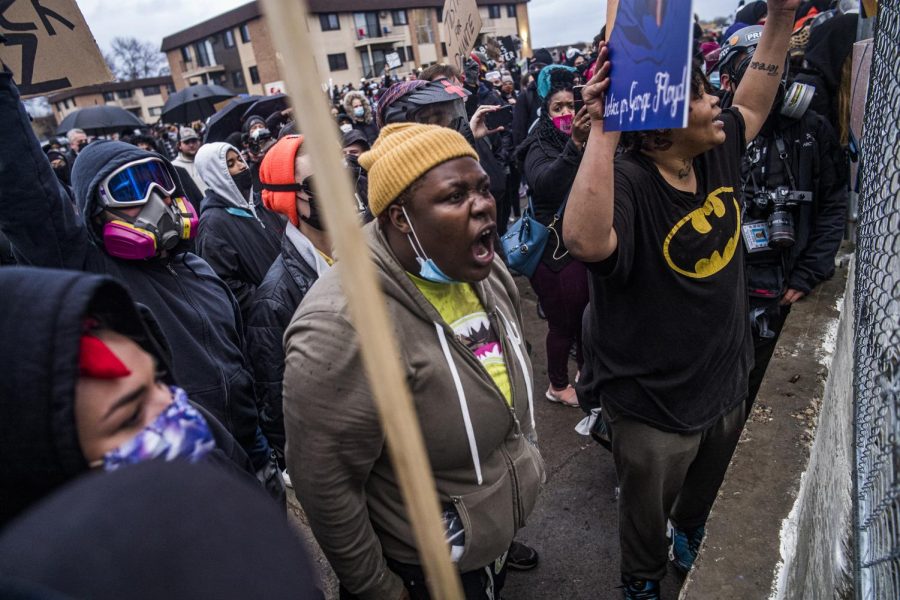The breakdown on police brutality
Opinion columnist Mohammad Rawwas calls for discussion about police brutality and crime and the role they play in society today.
Apr 19, 2021
The structural critique of the police remains the same: their role is to enforce a property regime necessary for the functioning of capitalism, and any collateral is quite simply that, an unintended yet quietly accepted side effect of the necessary way in which they must operate in order to fulfill such a function.
However, the phenomenological critique of incidents of police brutality, often police killings, proceeds differently, though not incompatibly. Capitalism gives rise to such a level of individuation and alienation that everyone approaches everyone else as a potential danger, purely from the perspective of what that person could do to them as an individual, whether as a benefit or as a harm, as a use or as a danger.
This is to experience your fellow human beings as pure means rather than, as Kant would have it, as ends in themselves. This phenomenological reality is what results in police killings to the extent and frequency that they do occur, and we can see this same dynamic also give rise to phenomenon such as the racially-code suburban fear of crime, as well as the often-paranoid fear of public violence done against women (which often elides the sheer frequency of domestic violence and the reality that the majority of sex trafficking victims are male).
If we are to see a decrease in police violence, this will necessitate a general, fundamental change in the way that society views itself, in the way the strangers interact with strangers in general. However, this is a structural impossibility: only with massive upheavals in society, namely in material conditions and the prevailing mode of production, can this sort of relation to each other truly flourish. Capitalism is, after all, the ideology of utility, of pursuing one’s own self-interest, of relating to other people purely through the medium of the market, where the only relevant question is what commodity or monetary value do you have that I want and can trade you for. As Marx says, material relations between people become social relations between things.
On another note, some have pointed out the statistical unlikelihood of police encounters ending in death, and, have wondered why people who discuss police brutality do not seem to care as much about, say, crime, which seemingly has more harmful effects overall. The reality is that people form narratives around what is politically expedient for them, and in the current discourse what is deemed relevant or newsworthy, in both the liberal and conservative imagination, usually depends on the identities of the perpetrators and the victims.
This also speaks to a drying up of imagination of considering crime as something that is a necessary background that cannot be changed, while it is only police brutality that is unnecessary and can be remedied, when in reality they can both be addressed, as they both arise from the same source (the property regime). It is important to note that what should be considered important to discuss needs to be based on some criteria that moves beyond identity, yet also beyond mere statistics, and should really be about what can be tied to a structural critique.
Both police brutality and crime should be discussed, because they both arise from structure. There is no objective criteria, but partisan politicizing is also unhelpful. Finally, it has also been noted that telling people not to comply with police will increase the likelihood that they will die, and should probably not be advocated for. This is invariably true, though it is an unfortunate circumstance to be placed in in the first place.








